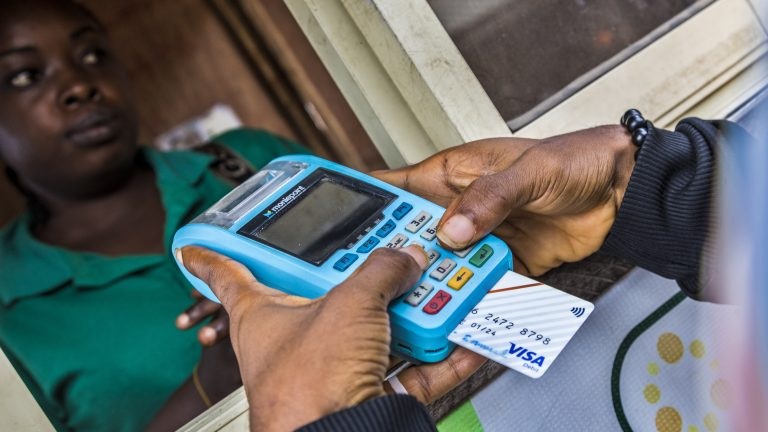
The Central Bank of Nigeria (CBN) has issued a new directive, that mandates Payment Service Providers (PSPs) to route all Point of Sale (PoS) transactions through certified Payment Terminal Service Aggregators (PTSAs) within 30 days.
This regulation announced on September 11, 2024, via a circular signed by Oladimeji Yisa Taiwo, on behalf of the CBN’s payments system management department, aims to enhance the security and oversight of electronic payments by only allowing authorized entities to process PoS transactions across the country.
Part of the circular reads,
Register for Tekedia Mini-MBA edition 19 (Feb 9 – May 2, 2026): big discounts for early bird.
Tekedia AI in Business Masterclass opens registrations.
Join Tekedia Capital Syndicate and co-invest in great global startups.
Register for Tekedia AI Lab: From Technical Design to Deployment (next edition begins Jan 24 2026).
“To achieve the objective of tracking electronic transactions in Nigeria, the Central Bank of Nigeria, in August 2011, granted a Payment Terminal Service Aggregator license to Nigeria Interbank Settlement System Plc. In furtherance of the above, the CBN hereby directs acquirers to route all transactions from PoS terminals at merchant and agent locations, whether physical or electronic.
“PoS terminals, through any CBN-licensed Payment Terminal Service Aggregator. PTSAs are required to send Po transactions to only processors certified by the relevant Payment Scheme, nominated by the Acquirer, and licensed by the CBN”.
The directive follows CBN’s recent diversification of the Payment Terminal Service Aggregator (PTSA) structure, previously managed by a single aggregator. It mandates that all PoS transactions, whether conducted at physical merchant locations or electronically, must be routed through any CBN-licensed PTSA. The aim is to decentralize PoS transaction routing, enhance transparency, and reduce reliance on a single aggregator.
Key Provisions of The Directive
1. Mandatory Routing of PoS Transactions: Acquirers must now route all transactions from Pos terminals, both physical and electronic, through any of the CBN-licensed Payment Terminal Service Aggregators (PTSAs). This ensures that all transaction data is captured and monitored by authorized entities.
2. Certification of Processors: PTAs are required to send Po transactions only to processors certified by relevant payment schemes. These processors must be nominated by the acquirer and licensed by the CBN to guarantee secure and transparent payment processing.
3. Flexibility for Acquirers: Acquirers have the autonomy to select their preferred processors and PTA, providing them with greater flexibility in managing their transaction processes. This allows for tailored solutions that meet their specific needs while adhering to regulatory requirements.
4. Device Configuration: Payment Terminal Service Providers (PTSPs) are instructed to ensure that their PoS devices and applications are correctly configured. This compliance measure guarantees that all transactions are routed through licensed PTAs as directed by the acquirers.
5. Monthly Reporting Requirements; PTSPs and PTSAs are mandated to submit detailed monthly reports to the CBN. PTSPs must report the number of merchants and agents they manage, as well as the services used to route transactions. PTSAs, in turn, must submit data on all processed transactions. These reports are to be sent to the CBN’s Director of Payments System Management Department within seven days after the end of each month.
6. Compliance Notification: PSPs are given a 30-day window to align their operations with the new requirements. Both PTSPs and PTSAs must notify the CBN in writing of their compliance within this period, confirming that they have regularized their operations as per the directive.
This new directive is coming Following the expiration of the deadline for PoS operators to register with the Corporate Affairs Commission (CAC).



